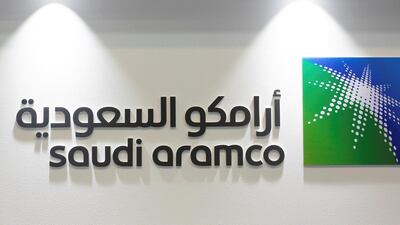Saudi Aramco, the world's biggest oil producer, International Maritime Industries (IMI), its joint venture with Lamprell, the National Shipping Company and Hyundai Heavy Industries Company to build multi-billion dollar maritime yard in the kingdom, which it expects will befully operational in 2022.
The joint venture, which is the anchor project within the King Salman International Complex for maritime industries and services at Ras Al-Khair, was officially launched on Saturday and will be headed by Fathi K. Al-Saleem, Saudi Aramco said in a statement, adding that the initial production and service operations are expected to start in 2019.
"International Maritime Industries is positioned to be a global competitor and a regional hub for maritime products and services," Mr. Al-Saleem said. "Through our combination of technology, integrated facilities and supply chain efficiency, we are redefining what it means to partner with customers for maritime advancement."
The 12 million square-meter facility will have the largest production capacity in the Arabian Gulf region and will help Aramco and its partners reduce costs, cut down response time and boost agility when it comes to offshore drilling and shipping activities. The yard will have annual capacity to build four offshore rigs, more than 40 vessels including three very large crude carriers and it will be able to service over 260 maritime products.
________
Read More:
Saudi Aramco and Sabic to build world's largest oil-to-chemicals plant
Saudi Aramco inks pacts to build two industrial units
________
The joint venture is part of Saudi Arabia's economic diversification plans as the kingdom, the region's biggest economy, seeks to rationalise spending, create jobs for local workforce and develop alternative revenue line to compensate for dwindling hydrocarbon revenues. It is branching out into new business and has been busy sealing deals this year. Aramco, itself has been lined up for part privatisation and a public float of about 5 per cent stake in the firm is expected to yield US$100 billion in possibly the biggest-ever share sale globally.
Last week, Aramco signed two agreements with the Royal Commission for Jubail and Yanbu, a government body that manages free zones in the country, to set up two industrial projects at Ras Al-Khair. In November, Aramco and Sabic signed an agreement to build one of the world's largest oil-to-chemicals facilities, valued at $20bn.
Aramco also plans to raise its spending to $414bn over the next 10 years, including on infrastructure and drilling. The new capital expenditure target revealed earlier in December is higher than $334bn announced in 2017. Aramco's vice president for procurement and supply chain management, Abdulaziz Al Abdulkarim, in March said that the company's investment in a new energy industrial city in Saudi Arabia are estimated at $4.4bn while its investment in Ras Al Khair may reach 21.8bn Saudi riyals (Dh21.34bn).
Apart from naming Mr Al-Saleem, as the chief executive of the joint venture, other key executive were also appointed at the firm, the company said without naming the officials. Mr. Al-Saleem has worked at Saudi Aramco for more than 23 years and led the feasibility and commercial development stages of International Maritime Industries.
"By meeting Saudi Aramco's offshore production and transport needs, International Maritime Industries will serve our strategic intent to become the world's foremost integrated energy and chemicals company," said Abdullah I. Al-Saadan, chairman of the joint venture's board of managers and Saudi Aramco's senior vice president of finance, strategy and development.
IMI, Mr Al-Saadan said already secured orders for more than 20 rigs and 52 ships over the next decade.

